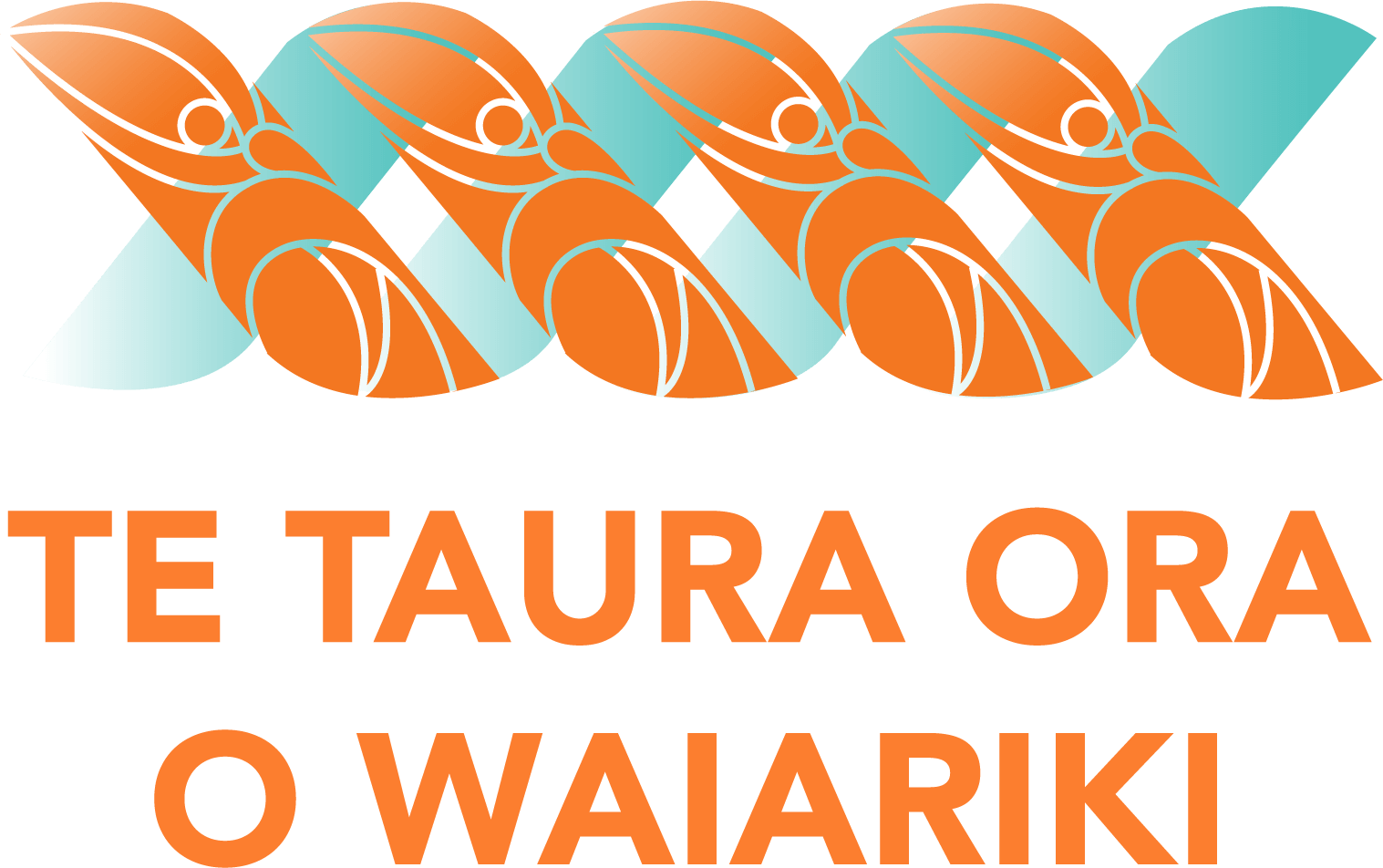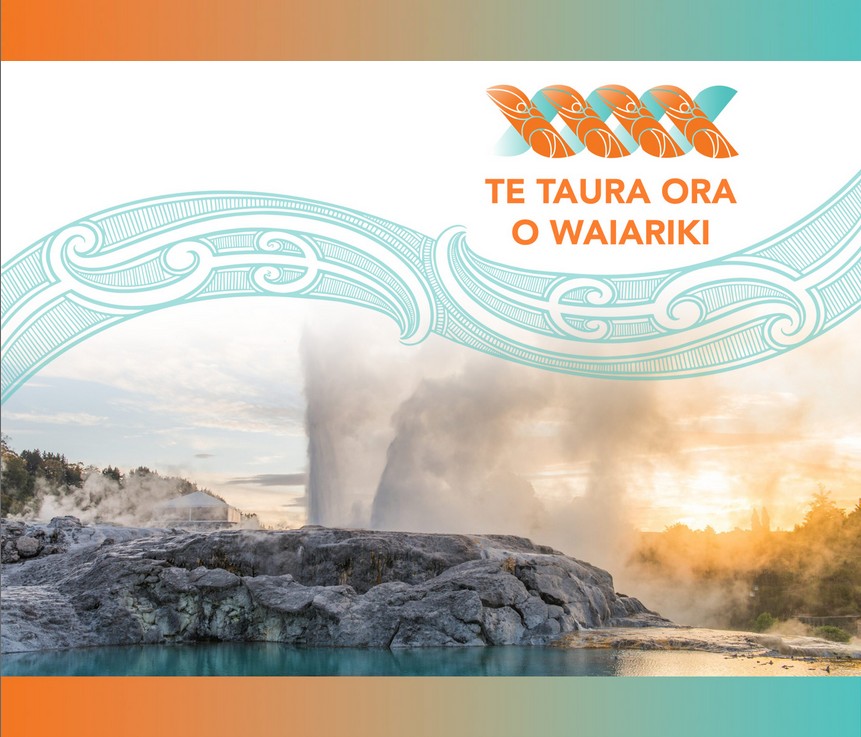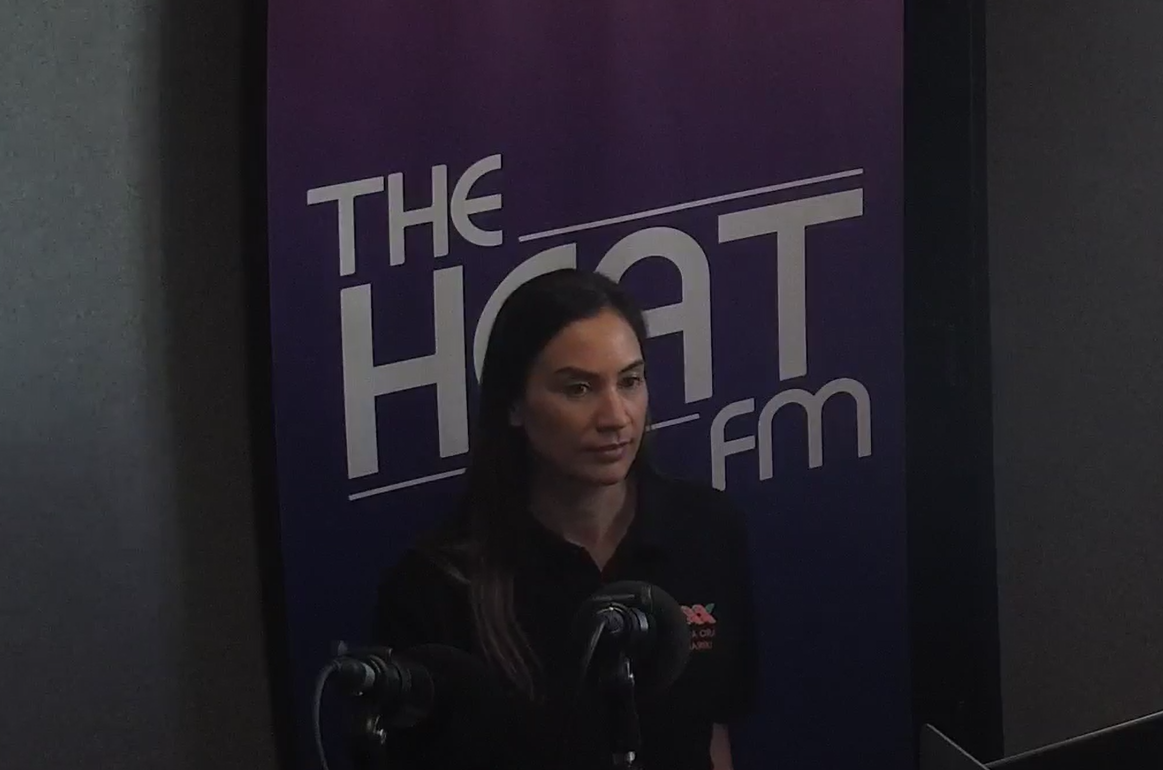Creating system change while staying true to ourselves
At Te Taura Ora, we are committed to ensuring that the lived experience of our whānau and their voices shape the health system, strengthening Māori leadership and placing tino rangatiratanga and mana motuhake at the heart of every decision we make. How to achieve hauora sovereignty is based on how to “practise it, grow it, and normalise it.”
Recently, our team engaged with international Indigenous thought leaders at the Toitū Hauora Māori Health Leaders Symposium, hosted by Ngāti Tūwharetoa in Taupō with the support of Te Rau Ora. The Symposium kōrero was around a central question “How do we create system change and be true to ourselves?”
This collaboration brought together Māori leaders, indigenous innovators, alongside Chief Kirk Francis and Kitcki Carroll from self-governing unired South and Eastern tribal nations in the USA to explore how Indigenous-led governance, investment, and policy can strengthen health and wellbeing outcomes for communities. By connecting across borders, we were able to share thirty years of insights, learn from proven models off-shore, and consider how these approaches can strengthen whānau health outcomes here in Aotearoa.
The symposium reinforced that system change must be guided by tikanga, history, and identity. We reflected on our Te Arawa whakapapa, mana motuhake and tino rangatiratanga pre-1840 before Tāngata Tiriti arrived, and the ongoing need to honour whānau perspectives in all aspects of healthcare.
Engaging with Indigenous leaders from overseas demonstrated how self-determination in health can be successfully exercised, providing insights into governance models, policy advocacy, and sustainable investment that can be adapted to the Aotearoa context.
Being part of the Symposium aligns directly with our strategic priorities at Te Taura Ora. By connecting with iwi, hapū, providers, and international partners, we are building networks, sharing knowledge, and advocating for Māori-led solutions that strengthen whānau wellbeing. We are embedding Whānau Voice in decision-making, growing our capacity to influence health policy, and demonstrating the value of Māori leadership in driving system change.
At the heart of this approach, our Chair, Hingatu Thompson, shared at the Symposium how our mahi at te Taura Ora is guided by three key pou:
- Whānau Mana Motuhake – empowering whānau to actively lead and participate in their wellbeing.
- Hapū and Iwi Tino Rangatiratanga – strengthening self-determination across hapū and iwi structures.
- Māori Kotahitanga – fostering unity across iwi to collectively shape a health system that works for all whānau.
Te Toitū Hauora is now a platform to connect, learn, and translate Indigenous-led innovation into action. By actively engaging with international thought leaders and working in partnership with iwi and whānau, Te Taura Ora is ensuring that Māori leadership, values, and aspirations are at the centre of the health system now and for generations to come.
A kaitiaki wānanga not for the bottom drawer
Te Taura Ora o Waiariki is focused on making sure every hauora dollar invested delivers value for whānau in a real-world context. To strengthen how we measure what matters most to our rohe, our Board and General Manager have recently upskilled through Social Value and Social Return on Investment practitioner training.
Board member Aroha Morgan says the training challenged expectations from the very beginning. “Initially probably about 99% of us were wondering why we were there. But that didn’t last long, probably fifteen minutes into it we understood the value of how it can be applied in real life.”
Like many trustees, Aroha had heard of SROI before but quickly realised this decision-making approach was different to what she expected and far more practical than many training programmes that end up in the bottom drawer.
A key insight for Aroha was how SROI helps shift thinking away from counting outputs and towards understanding what real change looks like for our whānau and hapori. The concept, the ‘theory of change’ stood out strongly for her along with how to measure value.
“Essentially, it’s got a V in it now for value. That’s what got me. What would our community value?” she says. For Aroha, the training reinforced the importance of strengthening relationships with local stakeholders including iwi, hapū, hauora providers even PHO’s so they can use a shared tool to reflect honestly on what is working and how to improve service design and delivery.
As one of 15 Iwi Māori Partnership Boards across the motu, Te Taura Ora o Waiariki carries significant responsibility for monitoring the health system and influencing how funding is allocated and spent. Aroha says SROI provides a clear framework and process to support this kaitiaki role, with a step-by-step template that systematically investigates all aspects of proposed projects or developments. Rather than making decisions based on assumptions, the approach supports deeper analysis and stronger evidence, helping the Board advocate confidently for what whānau need.
During the training, Aroha and our Chair Hingatu Thompson worked through a live example using our Whānau Voice Grant Kaupapa. She says the step-by-step SROI approach showed how strengthening programme design can support better decision making and influence policy.
“When we take the time to map outcomes properly, we can better demonstrate impact with confidence about what works,” she says. What excites her most is now having a practical tool to analyse proposed projects in a way that strengthens advocacy and supports smarter investment decisions. “Most courses just go in the bottom drawer. Not this one, it’s a keeper,” she says.
The training also taught ‘Hypothesis and Emergence Theory’. For Aroha, this is simply about telling the stories that endure, including the ones that are often left behind in traditional reporting and funding conversations. She sees it as an opportunity for whānau to tell their stories in their own way, and a reminder that when working in complex real-world contexts, “it is better to be vaguely right than precisely wrong.”
Twelve Projects Chosen in First Round of Whānau Voice Grants
Twelve whānau-led projects have been chosen in the first round of Whānau Voice Grants, giving hapori across our rohe the chance to shape hauora and wellbeing in ways that matter to them. Originally planned for ten grants from a $50,000 pool, the fund was boosted to support twelve projects, recognising the exceptional quality and creativity of the submissions received.
The grants were created to put whānau at the centre of decision-making, recognising that those living the experience know best what works locally. Proposals poured in demonstrating the strength, creativity, and commitment of whānau to transform hauora in their communities.
The winning Whānau Voice Grants highlight the strength and creativity of whānau-led solutions across the rohe, from digital storytelling and a ‘Virtual Whare Kōrero’ to filmed kōrero, podcasts, and photography. Plus kaupapa to improve health pathways, support rangatahi wellbeing, and uplift identity- and tikanga-led initiatives like Takatāpui hauora, moko kanohi revitalisation, and hapū-led burial planning. Together, they show that hauora thrives when whānau lead solutions grounded in culture, connection, and lived experience.
When the fund closed in November, twenty-five entries had been received that met the criteria based on kaupapa Māori design and/or whānau-led delivery. One of our Board members, Rawiri Bhana, says our approach challenges the usual way funding works.
“Communities that don’t fit the usual parameters, like remote or rural whānau, tāngata whaikaha, gang whānau, takatāpui, and young parents who often go unheard. Instead of asking whānau to conform, we are adapting the system to capture their expertise, creativity, and insight,” he says.
Entries were reviewed by a selection panel in December, with all submissions anonymised to ensure fairness. The high quality of proposals and strong alignment with Te Taura Ora o Waiariki values showed the depth of thought and creativity whānau bring to improving hauora.
The process revealed many grassroots initiatives need support alongside funding, with strong interest in projects grounded in tikanga Māori and mātauranga Māori. Whānau-led initiatives approached hauora priorities such as immunisations, oral health, and mental health in innovative, locally led ways.
As a result whānau were inspired to collect, interpret, and share their own stories, honouring that they are experts in their own health journeys. Social media helped spread the word, encouraged participation, and applicants described the process as mana-enhancing and empowering.
This approach is helping to build leadership and strengthen whanaungatanga at the grassroots. Participating whānau are developing skills in engagement, analysis, and storytelling, which can be applied to future planning and service design within the health system.
The twelve Whānau Voice Grant recipients will come together in February and, by May 2026, roll out their health and wellbeing initiatives, directly benefiting whānau across the Te Taura Ora o Waiariki region.
The twelve successful Whānau Voice Grant initiatives are:
| # | Organisation / Lead | Project |
|---|---|---|
| 1 | Korokai Holdings Limited | Tūhono - Strengthening health planning and commissioning. |
| 2 | Te Arawa Whānau Ora | Oro Tuawhenua Whānau Voice Shaping Cancer Prehabilitation for Māori |
| 3 | Donald Hollingsworth | Takatāpui Talk |
| 4 | Lynette Walmsley | Whakamana i te whenua, tūpāpaku, i te whānau. Reimagining burial practices. |
| 5 | Digital Narratives Academy | eSports sessions creating digital narratives. |
| 6 | Natalie Richards | Awhi Mai ki Rotorua - Stories of stroke survival. |
| 7 | Te Rūnanga Ngāti Kea Ngāti Tuara | Mokopapa – moko kanohi a pathway to cultural identity, hauora, and reconnection. |
| 8 | Kirini Limited | Immunisation whakaaro. |
| 9 | Christopher Ranui-Molloy | Ko Wai Mātou? Taonga Based Whānau Hauora Storytelling Pilot. |
| 10 | Waitangi Clarke | Ka Hao Te Rangatahi - marae-based wellbeing and cultural development. |
| 11 | Tipene James | Mental Health Waikite Senior A’s whānau voices. |
| 12 | Bianca Taute | Silencing the shitty committee – Podcast series on rangatahi mental health awareness. |
Hingatu Thompson | Māori Health Advocate Hingatu Thompson Sounds Alarm Over Pae Ora Changes
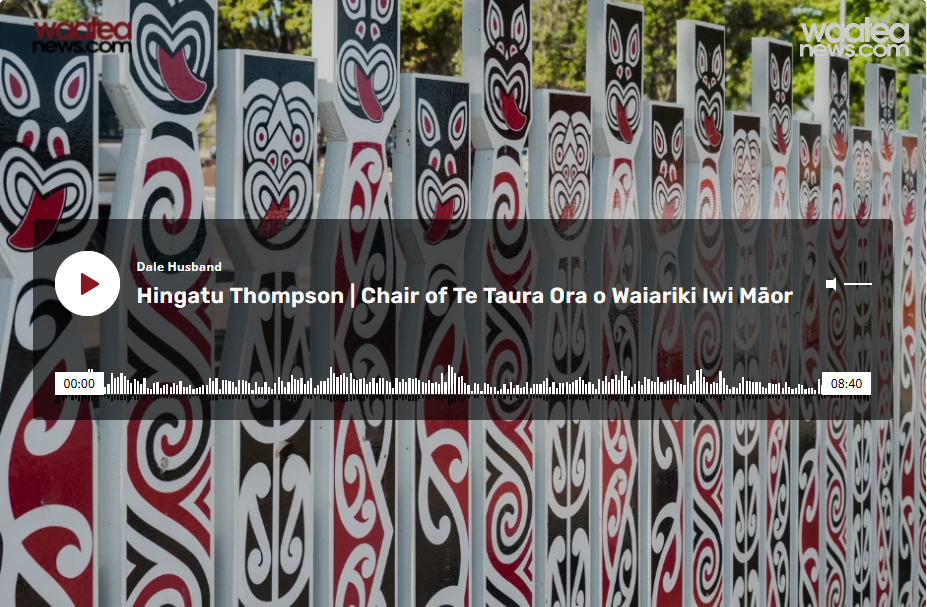
Hingatu Thompson: Pae Ora Bill Changes Called ‘An Attack on Māori Health Futures.
Hingatu Thompson, a member of the Te Taura Ora o Waiariki Iwi-Māori Partnership Board, has publicly warned that the government’s proposed reforms under the Healthy Futures (Pae Ora) Amendment Bill represent “an attack on Māori health futures”. The concerns have added to widespread industry and community opposition to the Bill.
The Amendment Bill seeks to restructure how health services are delivered nationwide. Among the most controversial changes are:
-
The removal of the statutory obligations for health organisations to pursue equity for Māori outcomes.
-
A diminished role for Iwi–Māori Partnership Boards (IMPBs). Under the reforms, IMPBs would be relegated to advisory status – stripping them of many existing powers around commissioning services, planning, and local Māori governance in health care.
-
The elimination of certain governance and Treaty-based obligations. The Bill removes the requirement for the health board to include expertise in te Tiriti o Waitangi, equity and kaupapa Māori when appointing its members.
-
Increased centralisation of decision-making, shifting power from local iwi-community input to national-level administration through the main health service provider.
Taken together, critics say these changes undermine decades of progress towards equitable Māori health outcomes and weaken the ability of Māori communities to shape health services for themselves.
Thompson has been vocal about four major flaws in the Bill, urging the government to reconsider before proceeding.
-
Hingatu argues the reforms reduce Māori agency and decision-making power in health – even though Māori continue to experience significant health inequities compared with non-Māori.
-
He warns that downgrading IMPBs to advisory status removes the guarantee of local input, making health planning less responsive to community needs and less culturally safe.
-
Thompson says the Bill’s shift toward infrastructure and broad national governance priorities risks sidelining kaupapa Māori health services and the holistic, whānau-centred approach that Māori communities rely on.
-
He expresses deep concern that removing statutory commitments to Māori health equity effectively erases obligations under the Te Tiriti o Waitangi in health care – a fundamental principle since earlier health reforms.
In his view, the Bill doesn’t just restructure the health system – it represents a retreat from Treaty-based accountability and a threat to Māori wellbeing.
Thompson is not alone. The Bill has drawn criticism from a wide range of health professionals, Māori organisations, primary-health providers, and disability advocacy groups. Many submitters to the Health Committee described the Bill as weakening equity commitments, reducing accountability, and threatening community-based care models that target Māori needs.
One medical community submission warned that removing obligations to improve Māori health outcomes risks worsening inequities, not only for Māori but for many other vulnerable populations.
Meanwhile, Māori health advocates across the motu say the changes reverse years of progress and could lead to poorer health outcomes, less cultural safety, and decreased trust in public health institutions.
The reforms come only a little over a year after the disestablishment of the former dedicated Māori Health Authority, Te Aka Whai Ora – itself one of the pillars of Māori-led health governance. That 2024 change was controversial and challenged under a priority inquiry by the Waitangi Tribunal, which found the Crown had breached Treaty obligations in how it removed Te Aka Whai Ora without proper consultation or Māori agreement.
Many see the current Amendment Bill as the next step in a legislative trend that sidelines Māori-specific health governance and erodes structural protections for Māori health equity.
As of December 2025, the Healthy Futures (Pae Ora) Amendment Bill has passed its first reading and is before the Health Committee for submissions. But according to media reports, the Committee’s final report – submitted recently – returns the Bill to Parliament without changes, despite widespread opposition.
For Thompson and many others, that outcome signals that the government may proceed regardless of how many communities, medical experts and Māori leaders speak out – making their advocacy ahead of the next legislative stage all the more critical.
They are urging Māori, whānau, and community supporters to submit feedback to the Health Committee (or resubmit if already done), to publicly vocalise concerns, and to call on MPs to uphold Treaty-based health equity and meaningful Māori participation in the health system.
Original Article Source: https://waateanews.com/2025/12/05/hingatu-thompson-chair-of-te-taura-ora-o-waiariki-iwi-maori-partnership-board/
Healthy Futures Amendment Bill Is “An Attack On Māori Development”
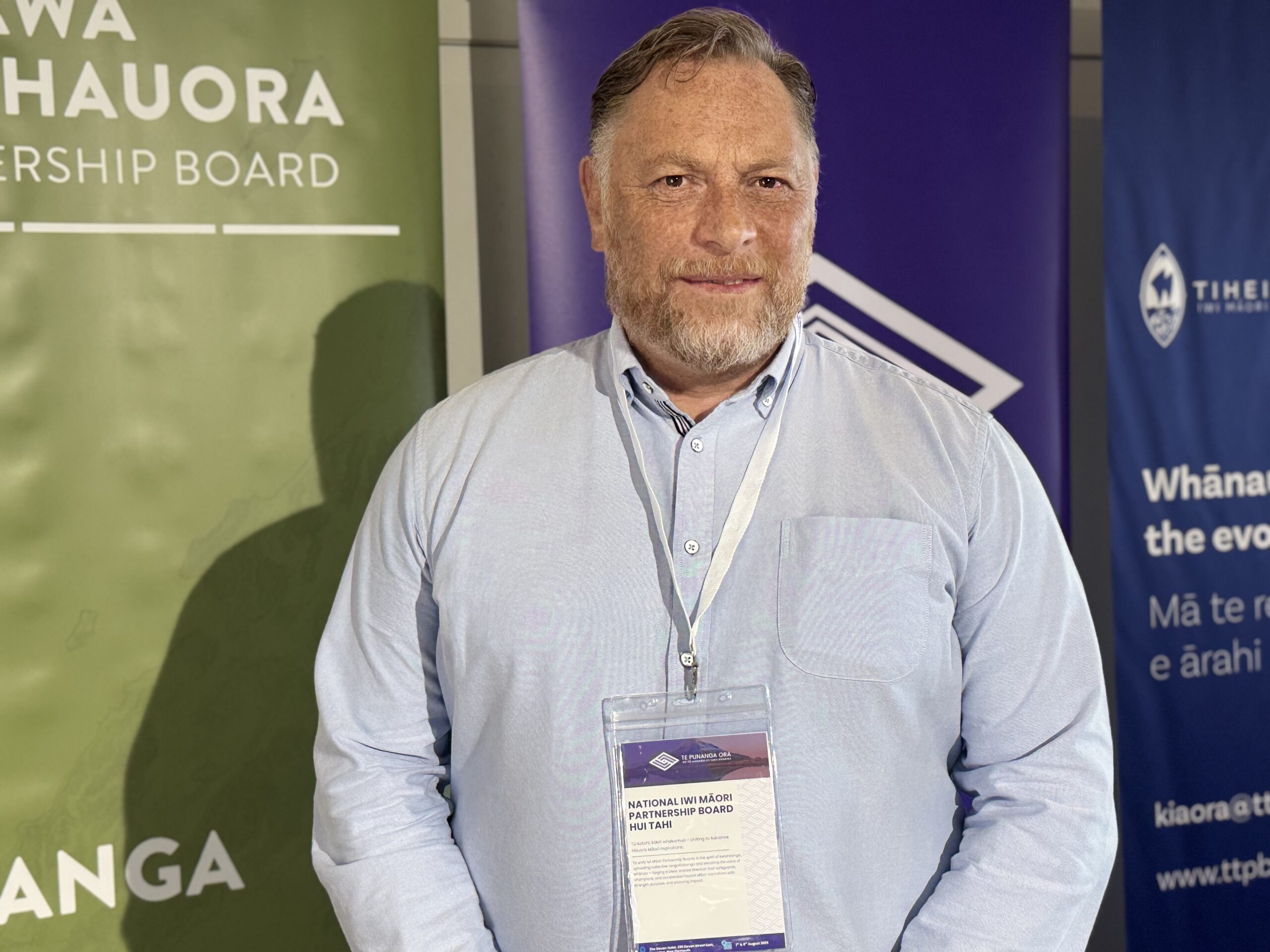
Te Taura Ora o Waiariki, Iwi Māori Partnership Board says the Health Select Committee’s recommendation to pass the Healthy Futures (Pae Ora) Amendment Bill undermines Te Tiriti o Waitangi, ignores overwhelming public submissions, and is “an attack on anything that strengthens the future for Māori,” said Chair Hingatu Thompson.
At a time when iwi hauora leaders are raising concerns about racial discriminatory government policy at the United Nations, Hingatu says the Bill continues a pattern of sidelining evidence, weakening Indigenous rights, and eroding the foundations of the health system.
“At a high level, the Bill feels like an attack. Anything that strengthens Māori futures seems to be under assault by this government. The Pae Ora framework was built on Tā Mason Durie’s vision of a healthy future, and now they’re pulling apart everything that upholds it.”
He says both Māori voices and those of supportive non-Māori organisations were ignored. “When you remove evidence, ignore submissions, and downgrade Te Tiriti, you’re left with political ideology interfering with the democratic process. And that ideology is clearly anti-Māori,” he said.
The Bill removes localities, downgrades te reo Māori in legislation, weakens Iwi Māori Partnership Boards voted in to the governance role by their Iwi and hapū, and replaces genuine partnership with the Crown appointed Hauora Māori Advisory Committee.
“This feels like Colonisation all over again. The unwillingness to include Māori kupu signals a deeper dismissal of Māori knowledge too. Advisory committees can have amazing people, but they’re still hand-picked by government which is controlling the outcome. That is not partnership or tino rangatiratanga.”
Hingatu warns the government is out of step with the rest of the country. “Aotearoa is ready for a more substantive expression of Te Tiriti. The public is ahead of the government, look what is happening with the schools’ response to the proposed changes to the Education and Training Amendment Bill. This regression doesn’t reflect who we are as a nation.”
He says the changes undo decades of Māori health advancement. “It has taken forty years to build what we have. One term of government should not be able to unwind it. Undermining whānau undermines the future of Aotearoa. Our rangatahi won’t sit quietly, they expect to be heard.”
Te Taura Ora is also alarmed by the removal of strategies for groups most affected by inequity, including whaikaha whānau. “Removing strategies for those already struggling to be heard is dangerous. These inequities are avoidable, unfair, and unjust. The amendments make them worse.”
Hingatu says political interference in evidence-based policy risks public trust. “When Māori die seven years earlier, and decades of evidence explain why, you expect a government to act, not ignore it. Ideology interfering with the democratic process is dangerous,” he said.
Despite widespread opposition, the coalition has the votes to pass the Bill Hingatu anticipates. He believes this will trigger further action, including a Waitangi Tribunal claim and international scrutiny.
Regardless, Te Taura Ora will continue to work with iwi, hapori, and whanau to protect Te Tiriti and achieve better outcomes in Hauora Māori for whānau.
Original Article Source: https://www.scoop.co.nz/stories/AK2512/S00085/healthy-futures-amendment-bill-is-an-attack-on-maori-development.htm
Opinion: Whānau Voice Grant doubles engagement as Te Arawa leads health change

Rawiri Bhana, from the Te Taura Ora o Waiariki Iwi Māori Partnership Board, reflects on an extraordinary response to a health initiative.
Over the past two weeks, something remarkable has happened across Te Arawa.
Our new Whānau Voice Grant, a $50,000 fund that empowers local whānau to shape health and wellbeing, has sparked a level of engagement that has been overwhelming and inspiring.
And it proves one thing: when you listen to whānau, they respond with energy, insight and solutions.
I’ll be honest: we weren’t sure how the community would engage.
But after our first radio interview on The Heat, my phone lit up with calls from all corners of the rohe. Whānau were saying, “We saw you on the morning show, how can we apply?”
From hapū māmā and natural birthing advocates, to rangatahi, Takatāpui, and even local gang communities, all sorts wanted to step forward.
Whānau from the Block reached out, excited to activate their own initiatives. The response has been extraordinary.
Registrations have doubled.
Traffic to our registration page has increased by 87%, and visits to the application page are up 62%.
The highest-viewed page on our website is the Whānau Voice Grant Guidelines & Criteria.
On social media, our top posts to date include Applications Now Open (5132 views) and Pitch Your Best Idea (5849 views).
This grant is designed to be inclusive and accessible.
Rangatahi, for example, can submit a simple video, tell a story, or express their ideas in a medium that suits them, not a 20-page application form.
We want whānau to engage in their own language, style, and way. It’s not about fitting into the system; it’s about reshaping the system to reflect whānau realities.
For too long, our national health system has operated like a one-size-fits-all model.
Communities that don’t fit the usual parameters like remote or rural whānau, tāngata whaikaha, gang whānau, takatāpui, young parents, often go unheard. This grant flips that dynamic on its head.
Instead of asking whānau to conform, we are adapting the system to capture their expertise, creativity, and insight.
Already, stories are emerging that wouldn’t appear in standard reporting cycles.
Rangatahi sharing what wellbeing truly feels like, hapū māmā highlighting gaps in birthing and postpartum support, takatāpui whānau surfacing health challenges and solutions that are invisible in traditional data.
These are insights that decision-makers in our Te Manawa Taki region and in Wellington need to hear and they come directly from our people living the experiences.
Our Te Taura Board sees success not just as awarding the 10 $5000 grants available in this first round, but as receiving an abundance of applications.
Every story, every idea is valuable, and the more whānau contribute, the more we can support and scale solutions, not just this year, but in future tranches of funding.
This kaupapa is about making mokopuna decisions, those long-view choices whose benefits may only be seen by future generations.
It’s about ensuring the health system we build today is culturally grounded, relational, and responsive to the real needs of our people.
If the past two weeks are any indication, our whānau are rising. They are speaking. They are shaping their own future. Our job is simple: listen, honour their kōrero, and act.
Applications close at Thursday, November 27. Whānau can apply via our website tearawaimpb.co.nz/whanau-voice-grant-guidelines or through our social media channels.
It’s quick, simple, and your voice can make a real difference.
This is only the beginning. Whānau are leading the way and we are listening.
Original Article Source: https://www.teaonews.co.nz/2025/11/25/opinion-whanau-voice-grant-doubles-engagement-as-te-arawa-leads-health-change/
Listening to Whānau Is Changing the Future of Our Health System

Over the past two weeks, something remarkable has happened across Te Arawa. Our new Whānau Voice Grant, a $50,000 fund empowering local whānau to shape health and wellbeing, has sparked a level of engagement that has been overwhelming and inspiring. And it proves one thing: when you listen to whānau, they respond with energy, insight, and solutions.
I’ll be honest: we weren’t sure how the community would engage. But after our first radio interview on The Heat, my phone lit up with calls from all corners of the rohe. Whānau were saying, “We saw you on the morning show, how can we apply?”
From hapū māmā and natural birthing advocates, to rangatahi, Takatāpui, and even local gang communities, all sorts wanted to step forward. Whānau from the Block reached out, excited to activate their own initiatives. The response has been extraordinary.
Registrations have doubled. Traffic to our registration page has increased by 87%, and visits to the application page are up 62%. The highest-viewed page on our website is the Whānau Voice Grant Guidelines & Criteria. On social media, our top posts to date include ‘Applications Now Open’ (5,132 views) and ‘Pitch Your Best Idea’ (5,849 views).
This grant is designed to be inclusive and accessible. Rangatahi, for example, can submit a simple video, tell a story, or express their ideas in a medium that suits them, not a 20-page application form. We want whānau to engage in their own language, style, and way. It’s not about fitting into the system; it’s about reshaping the system to reflect whānau realities.
For too long, our national health system has operated like a one-size-fits-all model. Communities that don’t fit the usual parameters like remote or rural whānau, tāngata whaikaha, gang whānau, Takatāpui, young parents, often go unheard. This grant flips that dynamic. On its head. Instead of asking whānau to conform, we are adapting the system to capture their expertise, creativity, and insight.
Already, stories are emerging that wouldn’t appear in standard reporting cycles. Rangatahi sharing what wellbeing truly feels like, hapū māmā highlighting gaps in birthing and postpartum support, Takatāpui whānau surfacing health challenges and solutions that are invisible in traditional data.
These are insights that decision-makers in our Te Manawa Taki region and in Wellington need to hear and they come directly from our people living the experiences.
Our Te Taura Board sees success not just as awarding the ten $5,000 grants available in this first round, but as receiving an abundance of applications. Every story, every idea is valuable, and the more whānau contribute, the more we can support and scale solutions, not just this year, but in future tranches of funding.
This kaupapa is about making mokopuna decisions, those long-view choices whose benefits may only be seen by future generations. It’s about ensuring the health system we build today is culturally grounded, relational, and responsive to the real needs of our people.
If the past two weeks are any indication, our whānau are rising. They are speaking. They are shaping their own future. Our job is simple: listen, honour their kōrero, and act.
Applications close at COB Thursday, 27 November. Whānau can apply via our website tearawaimpb.co.nz/whanau-voice-grant-guidelines or through our social media channels.
It’s quick, simple, and your voice can make a real difference.
This is only the beginning. Whānau are leading the way and we are listening.
Kōrero with Sheena Waerea part of Te Taura Ora o Waiariki - Te Arawa IMPB
Kōrero with Sheena Waerea part of Te Taura Ora o Waiariki - Te Arawa IMPB in to talk about Whānau Voice grants that close off this week.
Sheena covers Purpose of the grants, Reminder of Closing Date, How easy it is to apply, Encouraging Last-Minute Entries.Applications are now open — click here to learn more. Applications close November 27.
REMINDER: Whānau Voice Grants Close This Thursday!
He wā tēnei kia rangona te reo o te whānau.
Now is the time for your voice to be heard.
If you’ve been thinking about applying for a Whānau Voice Grant, this is your gentle reminder - applications close this Thursday 27 November.
Watch the short video below to see how you and your whānau can share your stories, ideas, and experiences to help shape the future of health and wellbeing in our rohe.
Let your voice guide the way forward.
Kia kaha, kia māia, kia manawanui.
Now is the time for your voice to be heard.
Kia kaha, kia māia, kia manawanui.
